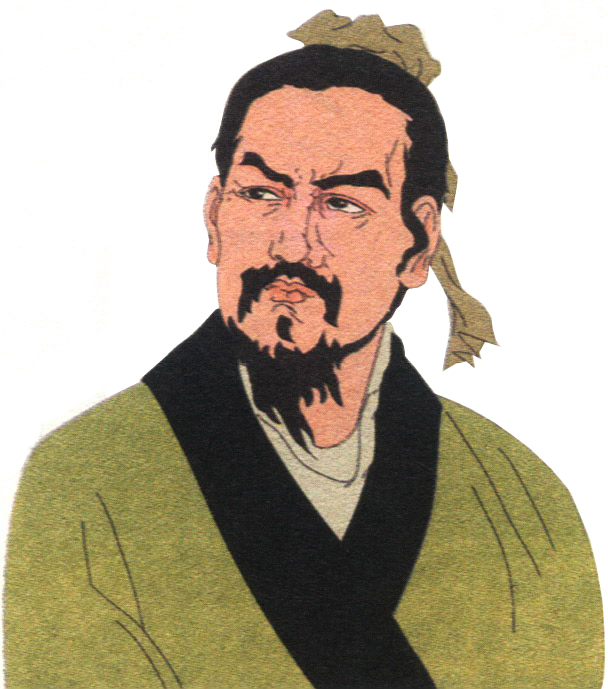
Han Feizi, named Han Fei, was a prince of the royal family of Han during the Warring States Period (475-221BC). He and Li Si studied with the philosopher Xun Kuang. Li Si, who later became chancellor of the Qin Dynasty (221-206BC) under the First Emperor Qinshihuang, felt that he was not the equal of Han Fei. But Han stuttered and could not present his ideas in court, which was a serious impediment. He overcame this by developing one of the most brilliant styles in ancient China.
Han Fei saw the gradual, but constant, decline of the State of Han and tried on several occasions to persuade the king to follow different policies, but the king proved incapable of following his advice. He witnessed with increasing despair how rulers of his day were beguiled by Ru (Confucianism) and Mohist philosophers who prattled endlessly about moral virtues and by roving bands of knights-errant who performed acts of daring in contravention of the laws. Both caused the increasing disorder of society and distracted rulers from the real tasks of governing. "When the state is at peace, rulers support scholars and knights-errant, but when troubles arise they employ men of arms. Thus they support people they do not need and do not support those they do need."
Ultimately, Han Fei's works made their way to the Qin State where the king, who later became the First Emperor Qinshihuang, saw them and wanted to meet the man who wrote them. Li Si identified the writings as those of his classmate Han Fei, and Han Fei did come to Qin in 234BC. But even though the First Emperor was pleased with Han Fei's advice, he did not fully trust him. Yao Jia, who had been censured by Han Fei for his conduct, played on the suspicion that, being a member of the royal family of Han, Han Fei could never be entirely loyal to the interests of Qin, noting "that it is the nature of human feelings that he will always work for the interests of his native Han and not for those of Qin." The First Emperor accepted Yao's conclusion and had Han Fei imprisoned for a crime. Han Fei tried to defend himself, but he could not get an audience. So Li Si sent him some poison so that he could commit suicide. The First Emperor later regretted his condemnation of Han Fei and was going to pardon him, but Han was already dead.
When he died in 233, Han Fei was still a young man, but he had already established a reputation because of his brilliant writings. Some 55 of his books survive collected together in Han Feizi. In his theory,Daoist thinking can be seen in such a state where the ruler rules by doing nothing (wuwei 無為). Practically, the ruler had to initiate behaviour standards ("laws", fa 法), controlling methods (shu 術) and controlling strength (shi 勢). His main philosophies include:
-- Having Regulations
No country is permanently strong. Nor is any country permanently weak. If conformers to law are strong, the country is strong; if conformners to law are weak, the counrry is weak... Any ruler able to expel private crookedness and uphold public law, finds the people safe and the state in order; and any ruler able to expunge private action and act on public law, finds his army strong and his enemy weak...
To govern the state by law is to praise the right and blame the wrong. The law does not fawn on the noble... To warn the officials and overawe the people, to rebuke obscenity and danger, and to forbid falsehood and deceit, nothing could match penalty. If law is definite, the superiors are esteemed and not violated. If the superiors are not violated, the sovereign will become strong and able to maintain the proper course of government. Such was the reason why the early kings esteemed Legalism and handed it down to posterity.
-- The Two Handles
The means whereby the intelligent ruler controls his ministers are two handles only. The two handles are chastisement and commendation. To inflict death or torture upon culprits, is called chastisement; to bestow encouragements or rewards on men of merit, is called commendation. |



